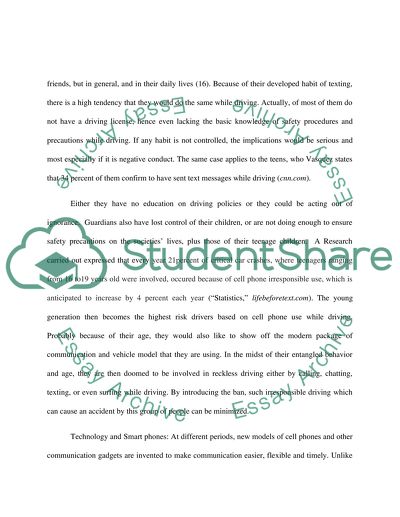Cite this document
(“Using a cell phone should be banned during driving Research Paper”, n.d.)
Retrieved from https://studentshare.org/sociology/1402787-using-a-cell-phone-should-be-banned-during-driving
Retrieved from https://studentshare.org/sociology/1402787-using-a-cell-phone-should-be-banned-during-driving
(Using a Cell Phone Should Be Banned During Driving Research Paper)
https://studentshare.org/sociology/1402787-using-a-cell-phone-should-be-banned-during-driving.
https://studentshare.org/sociology/1402787-using-a-cell-phone-should-be-banned-during-driving.
“Using a Cell Phone Should Be Banned During Driving Research Paper”, n.d. https://studentshare.org/sociology/1402787-using-a-cell-phone-should-be-banned-during-driving.


